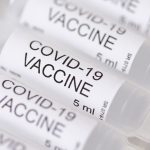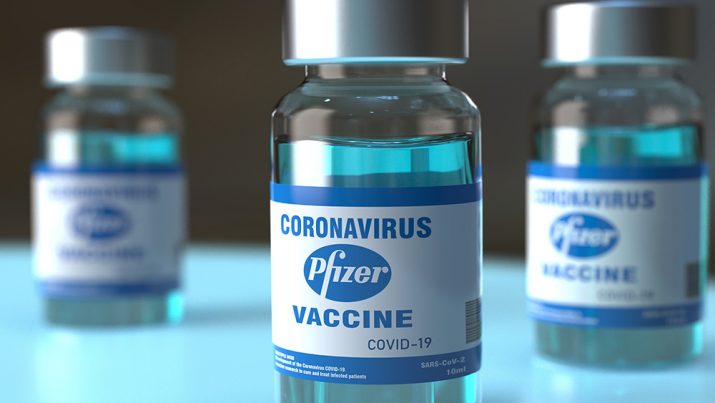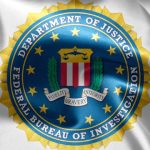
Man develops Bell’s palsy after getting Pfizer/BioNTech vaccine
Wednesday, July 21, 2021 by Ramon Tomey
http://www.naturalnewsreports.com/2021-07-21-man-develops-bells-palsy-after-pfizer-vaccination.html

A 61-year-old man from England who received two doses of the Pfizer/BioNTech vaccine developed facial paralysis. The U.K. National Health Service (NHS) confirmed the adverse reaction involving paralysis on one side of the face in a new report. Despite this, the NHS insisted that cases of post-inoculation Bell’s palsy such as the one experienced by the patient were “very rare.”
A paper published July 19 in BMJ Case Reports elaborated on the circumstances surrounding the 61-year-old. It said that the man did not have a previous history of facial paralysis and had no allergies to vaccines or other drugs. However, he had a number of underlying conditions, such as high blood pressure and Type 2 diabetes.
The man received his first dose of the Pfizer/BioNTech vaccine on Jan. 18, 2021. Five hours after his inoculation, the muscles on the right side of his face weakened. He visited the emergency room of a local hospital the next day, where he was prescribed the steroid prednisolone. The facial paralysis resolved after a four-week treatment period with the steroid.
Six weeks after his first dose, the man received his second dose of the Pfizer/BioNTech mRNA vaccine. Two days after his final vaccine dose, the Bell’s palsy episode returned – this time on the left side of his face. The symptoms he reported included dribbling, difficulty swallowing and being unable to fully close his left eye.
Once more, he visited the emergency room and was again prescribed prednisolone to address the paralysis. The man later said during a follow-up telephone call two weeks later that he was almost back to normal after the treatment.
The paper’s authors wrote that the man “has been advised to discuss future mRNA vaccines” with his physician on a case-to-case basis, “taking into account [the] risk versus benefit of having each vaccine” moving forward.
Englishman was just one of many
Patients with Bell’s palsy experience muscle weakness, as well as paralysis that causes half of their face to appear to droop. Symptoms typically improve within a few weeks, and patients fully recover in six months. However, a small number of patients either experience symptoms for a longer duration or have another bout of Bell’s palsy later in life.
While the exact causes of Bell’s palsy are unknown, scientists posit that an overreaction of the body’s immune system is behind it. The resulting overreaction leads to inflammation or swelling that damages a nerve responsible for facial movement. However, there are reports of people experiencing Bell’s palsy after inoculation – such as the 61-year-old man. (Related: Contrary to media reports, COVID-19 vaccines do cause a paralyzing facial condition.)
The paper’s authors also mentioned two other cases of facial paralysis following inoculation with the Pfizer/BioNTech COVID-19 vaccine. A 57-year-old woman from Los Angeles developed severe Bell’s palsy on the left side of her face 36 hours after she received her second vaccine dose. She received the first dose of the mRNA vaccine 19 days earlier. While the 57-year-old woman had three previous episodes of facial paralysis, the paper said steroid and antiviral drug treatment helped address her condition.
Meanwhile, a healthy 37-year-old Italian man found the left side of his face paralyzed five days after his first dose of the Pfizer/BioNTech vaccine. He did not have any previous bouts of Bell’s palsy and had no significant past medical history. The Italian man’s condition also improved after treatment with high-dose steroids.
Facial paralysis was already a risk linked to the vaccine
Bell’s palsy had already been deemed a risk connected to the Pfizer/BioNTech vaccine – ever since its clinical trials. The U.S. Food and Drug Administration (FDA) said in December 2020 that four participants in the vaccine’s clinical trials suffered facial paralysis. It revealed this finding in a report released days before the mRNA vaccine was granted emergency use authorization.
According to the FDA report, one participant experienced facial weakness within three days following inoculation. Their face returned to normal after three days. A second participant developed the condition nine days after inoculation, while two others developed Bell’s palsy 37 and 48 days later. The latter three eventually recovered from the facial paralysis between 10 and 21 days. (Related: Four volunteers immunized with Pfizer’s coronavirus vaccine developed Bell’s palsy; FDA denies jab caused it.)
Despite this risk, the FDA approved the Pfizer/BioNTech vaccine for emergency use in the U.S. on Dec. 11. It said in a statement that the vaccine “has met the statutory criteria” for emergency approval as there was more than enough data proving that it “may be effective in preventing COVID-19.” The FDA added that the known and potential benefits outweigh its known and potential risks, making it ideal for use in people aged 16 years old and up.
VaccineInjuryNews.com has more stories about the risk of facial paralysis that comes with the Pfizer/BioNTech COVID-19 vaccine.
Sources include:
RECENT ARTICLES


Four FBI agents found to have paid PROSTITUTES while on overseas duty
By Ramon Tomey

Russia threatens to deploy intermediate-range nuclear missiles in Europe as tension with US escalates

Medical martial law: Military taking over hospitals in FOUR states after thousands of nurses were fired for having natural immunity and refusing spike protein injections
By Ethan Huff

Hospitals are retracting their COVID-19 vaccine mandates due to federal court rulings and labor shortages
COPYRIGHT © 2017 NATURAL NEWS REPORTS


